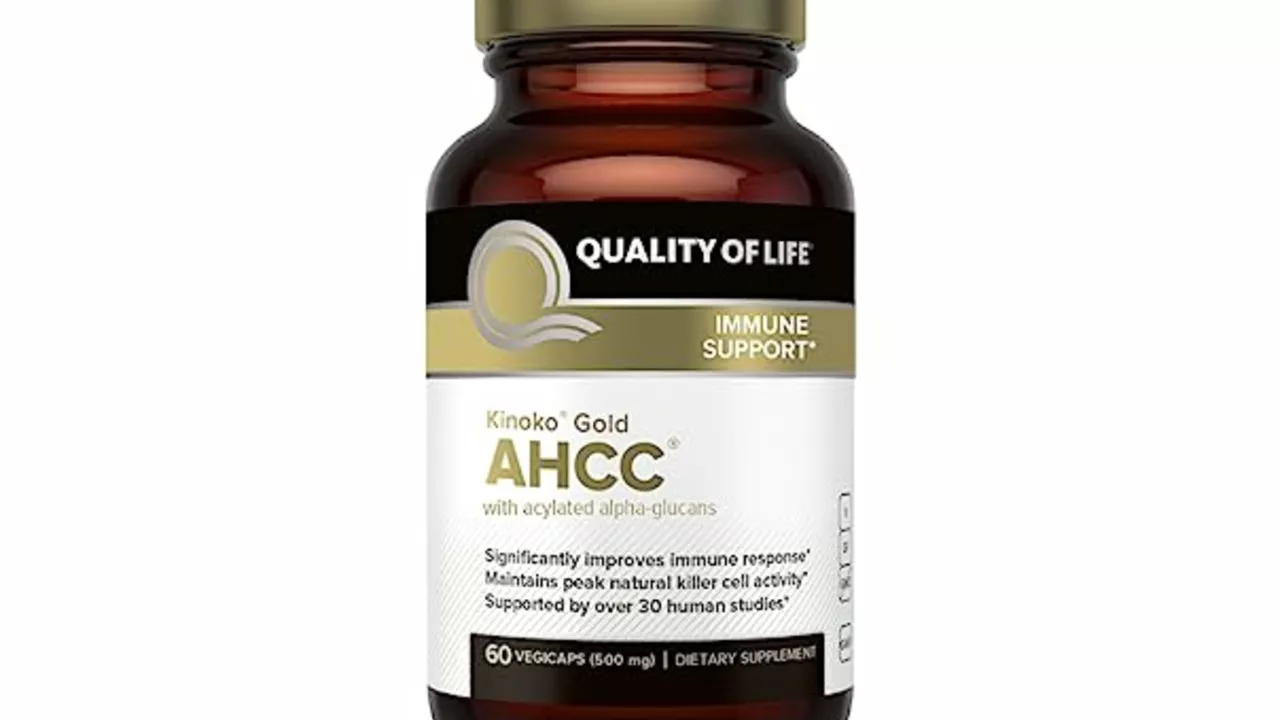AHCC: What It Is, How It Helps, and How to Use It
Many people take AHCC hoping it boosts immunity; small clinical trials from Japan report stronger natural killer cell activity and better immune markers. AHCC is a mushroom-derived supplement made from cultured mycelia, not the mushroom fruiting body. People take it to support the immune system, help recovery during cancer treatment, and reduce upper respiratory infections. Some studies paired AHCC with chemotherapy or surgery to look at recovery and survival.
How does AHCC work? It contains alpha-glucans and other compounds that appear to modulate innate and adaptive immunity. That means AHCC may help your body respond to infections and recover from stressors, not act like an antibiotic or a cure. The exact mechanisms are still under study, but lab and human data suggest measurable immune effects.
Typical dosing and timing
Most studies and supplement labels recommend 1 gram to 3 grams per day, usually split into two or three doses. People often start with one gram daily for a week to check tolerance, then increase if needed. AHCC is taken with food and can be used long term in cycles—some users follow three months on, one month off—but there's no universal schedule backed by strong evidence.
Safety, side effects, and who should be careful
AHCC is generally well tolerated. Reported side effects are mild and include stomach upset and headaches. Because AHCC stimulates the immune system, people with autoimmune diseases or those on immune-suppressing drugs should talk to their doctor before using it. If you have cancer, discuss AHCC with your oncology team to avoid interference with treatment plans. Pregnant or nursing people should avoid AHCC without medical advice due to limited safety data.
Choosing a product matters. Look for brands that list AHCC dose per capsule, use third-party testing, and provide batch numbers. Standardized extracts with clear alpha-glucan content are preferable. Avoid products that promise miracle cures or unrealistic benefits.
How to judge if AHCC is helping you: track concrete signs such as fewer colds, faster recovery after illness, or improved energy. If using it as part of cancer care, rely on lab markers and your doctor's assessments rather than impressions alone. Stop the supplement and seek medical advice if you notice unusual symptoms or if your condition changes.
Cost and accessibility: AHCC is available online and in health stores. Prices vary by dose and purity; higher-priced products may offer better standardization. If cost is a concern, check for verified discounts or ask your pharmacist about comparable options.
Questions to ask your provider before starting AHCC: Will AHCC interact with my medications? Is there evidence for my specific condition? What dose would be reasonable for me? Bringing these questions helps make the choice safer and clearer.
Quick tips: start low and watch for effects, keep a symptom diary for four to eight weeks, store bottles in a cool, dry place, and choose brands with published clinical data. If unsure, ask a pharmacist or integrative doctor for personalized advice.
The Science Behind AHCC: How This Dietary Supplement is Revolutionizing Health and Wellness
Diving into the science behind AHCC, it's clear this dietary supplement is transforming the health and wellness world. AHCC, or Active Hexose Correlated Compound, is derived from mushrooms and has been shown to boost the immune system, fighting off infections and diseases. It's also been associated with cancer prevention and improved liver health. It's fascinating how this natural solution is making a significant impact on health, proving once again that nature often holds the key to our well-being. I can't wait to see how AHCC continues to revolutionize the health and wellness industry in the future.
More
